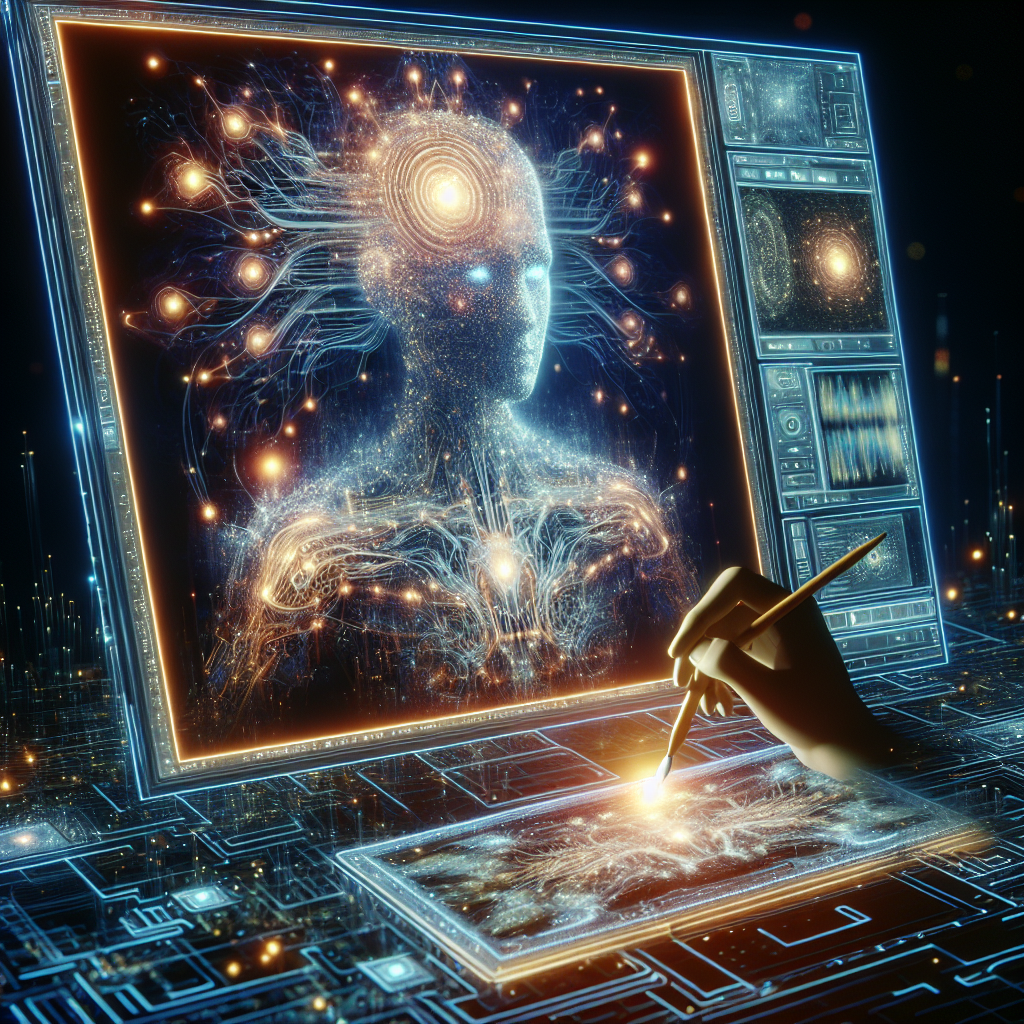Meta's Leap into Real-Time AI-Generated Animated Images: A Game Changer?
Meta Platforms, Inc., the behemoth behind social networking giants such as Facebook and Instagram, has once again thrust itself into the spotlight with an innovative addition to its technological repertoire—real-time AI-generated animated images. This feature not only embellishes their platform with a fresh layer of interactivity but also underscores their ongoing commitment to advancing AI capabilities. Here's an in-depth look at why this development could be more than just a novelty and may actually redefine user interaction in digital spaces.
Unpacking the Innovation
Meta's new AI image generator isn't merely about static visuals; it's about bringing them to life. When users navigate to https://www.youtube.com/watch?v=K2lxJ7BYxSI and engage with the platform's latest feature, they're introduced to a functionality that transforms generated images into animations in real-time. Imagine creating a digital portrait that begins to smile, or a scenic landscape that slowly transitions through the seasons—all at the click of a button. This isn't just innovative; it's revolutionary in the realm of digital content creation.
The Magic Behind the Tech
At the core of this technology lies an advanced AI system capable of understanding and manipulating visual elements in a way that mimics human creativity but at unparalleled speed. This system uses machine learning algorithms that analyze thousands of images and videos to learn how certain visuals can be animated in a realistic and appealing manner. The true magic, however, is in its ability to do this in real-time, which has always been a challenging area in AI development.
Implications for Content Creators and Marketers
For content creators and digital marketers, the implications of Meta's new tool are profound. No longer constrained by the need for extensive graphic design knowledge or resources, individuals can now create engaging, animated content at the click of a button. This democratizes content creation, making it accessible to a broader audience and potentially flooding platforms with rich, dynamic content that captures user attention more effectively than ever before.
Moreover, in an era where engagement metrics are the gold standards for content success, the ability to quickly generate personalized animations could lead to more profound interactions between brands and their audiences. Tailored content that reacts and evolves could become the new norm in personalized marketing.
Potential Challenges and Ethical Considerations
With every technological advancement, there are hurdles to overcome—both technical and ethical. One of the primary concerns with AI-generated content is authenticity and the potential for misuse, such as the creation of deepfake videos or misleading images. Ensuring that these tools are used responsibly and that there's a clear distinction between AI-generated and genuine content is paramount to maintaining trust in digital media.
Another challenge lies in the impact on the job market. As AI takes over more of the creative process, professionals in the industry may need to adapt or risk being overshadowed. The ongoing evolution might necessitate a shift in skills, focusing more on creative oversight and strategy rather than execution.
Future Prospects: Where Do We Go From Here?
Meta's introduction of real-time animated images is just the tip of the iceberg. As AI technology continues to evolve, we can expect even more sophisticated tools that further blur the lines between human and machine-made content. However, with these advancements must also come a robust framework for ethical AI use, ensuring that innovations enhance rather than diminish our digital experiences.
For a deeper understanding of the evolution and impact of AI in digital content creation, visiting sites like MIT Technology Review or TechCrunch can provide broader insight into the latest developments and their implications across various industries.
In conclusion, while Meta has indeed introduced a tool that could change how we interact with digital environments, the broader implications of such technologies must be carefully considered and managed. As we stand on the brink of a new era in digital content creation, it is essential to foster an environment where innovation is balanced with responsibility.
Related News
- The Rise of Meta AI: Unpacking Innovations and Implications
- The Exciting Evolution of AI Image and Video Generation: A Deep Dive
- Analysis of Recent AI Developments: A Deep Dive into Innovation and Controversy
- The Dawn of a New Era in AI Video Generation
- Navigating the Frontier of AI Innovation: Insights from Meta's Latest Developments
